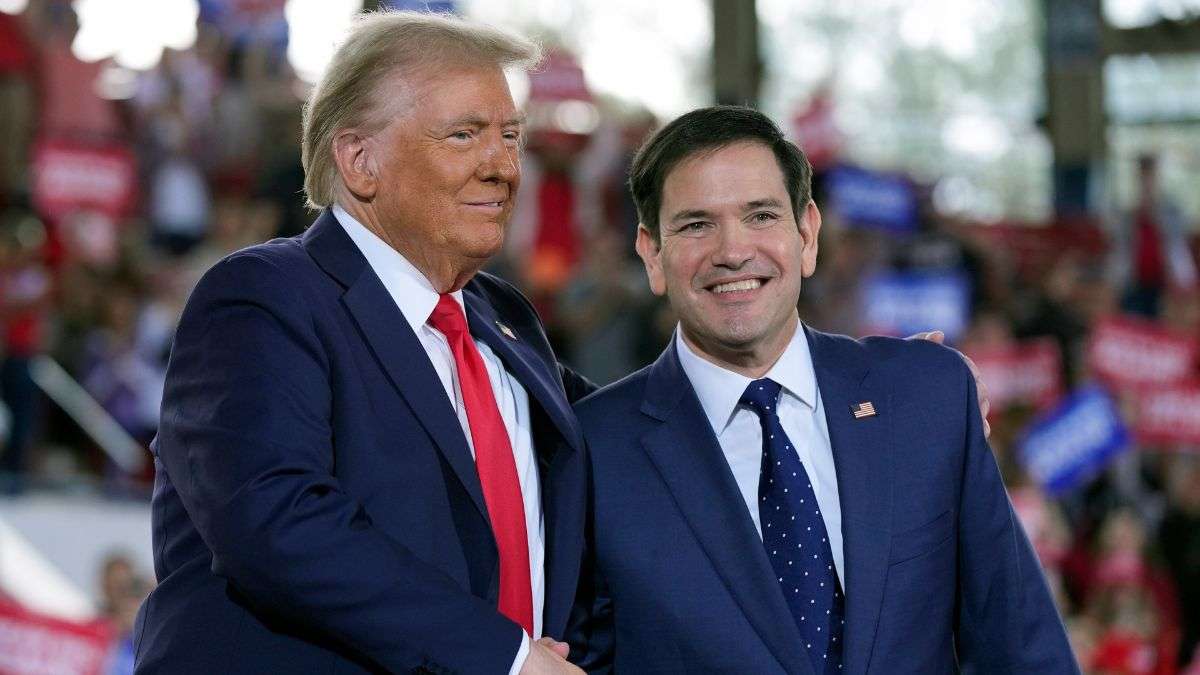
US President-elect Donald Trump officially announced on Wednesday he is nominating Republican Senator Marco Rubio, a senior member of both the foreign relations and intelligence committees and former political rival, to be secretary of state. “He will be a strong Advocate for our Nation, a true friend to our Allies, and a fearless Warrior who will never back down to our adversaries,” Trump said in a statement. The choice could come as a relief to US partners worried that the Trump administration could pull back from its global network of alliances, including NATO, given Trump’s more “America First” approach to foreign affairs.
Rumours of Rubio’s selection had prompted criticism from some members of the Republican party who saw his foreign policy views as too traditional and internationalist.
Who is Marco Rubio?
Rubio, 53, is known as a China hawk, an outspoken critic of Cuba’s Communist government and a strong backer of Israel. He has in the past advocated for a more assertive US foreign policy with respect to America’s geopolitical foes, although recently his views have aligned more closely with those of Trump’s “America First” approach to foreign policy.
In April, Rubio was one of 15 Republican senators to vote against a big military aid package to help Ukraine resist Russia and support other US partners, including Israel. Trump has been critical of Democratic President Joe Biden’s continuing military assistance for Ukraine as it fights Russian invaders.
Rubio has said in recent interviews that Kyiv needs to seek a negotiated settlement with Russia rather than focus on regaining all territory Moscow has taken in the last decade.
On the Gaza war, like Trump, Rubio has been staunchly behind Israel, calling Hamas a terrorist organization that must be eliminated and saying America’s role is to resupply Israel with the military materials needed to finish the job.
China had already imposed sanctions on Rubio
Rubio is a top Senate China hawk, and Beijing imposed sanctions on him in 2020 over his stance on Hong Kong’s democracy protests. This could create difficulties for any attempts to maintain the Biden administration’s effort to keep up diplomatic engagement with Beijing to avoid an unintended conflict.
Among other things, Rubio shepherded an act through Congress that gave Washington a new tool to bar Chinese imports over China’s treatment of Uyghur Muslims and has also pushed a bill that would decertify Hong Kong’s US economic and trade offices.
Will he stand up to Trump?
Rubio had also become a strong Trump backer, after harshly criticising him when he ran against the former real estate developer for president in 2016. In 2016 Trump helped end Rubio’s run for the presidential nomination by nicknaming him “Little Marco.” Some analysts questioned whether he would stand up to Trump, noting the president-elect’s inclination to make personal loyalty a central requirement for administration posts.
Aaron David Miller, a senior fellow at the Carnegie Endowment for International Peace, who served in both Democratic and Republican administrations, said it is essential for any president’s advisers to stand up to him when necessary, given the wide array of foreign policy challenges Trump will face. “I’m trying to keep an open mind here,” Miller said, noting that Rubio, because of his experience in Congress, has a better grasp of foreign policy than any of Trump’s other appointees.
The three-term Republican senator should easily win confirmation in the Senate, where Trump’s Republicans will hold at least a 52-48 majority starting in January.
Democratic Senator Mark Warner, chairman of the intelligence committee, quickly issued a statement praising the choice of Rubio, the panel’s vice chairman. “I have worked with Marco Rubio for more than a decade on the Intelligence Committee, particularly closely in the last couple of years in his role as Vice Chairman, and while we don’t always agree, he is smart, talented, and will be a strong voice for American interests around the globe,” Warner said in a statement.
Cuban migrant
Rubio, the son of immigrants from Cuba, will be the first Latino to serve as America’s top diplomat. He was born in Miami and still calls the city his home. His father was a bartender and his mother a hotel maid. In his first Senate campaign, he repeatedly reminded voters of his working class background and “only in America” story as the son of Cuban immigrants who became a US senator.
He is Catholic. But Rubio spent about six years of his childhood in Las Vegas, where he was baptized in the Church of Jesus Christ of Latter-Day Saints and attended Mormon services. The family moved to the city when Rubio was eight and his parents found jobs in the growing hotel industry.
They returned to Miami when he was 14.
(With inputs from agency)
ALSO READ:


